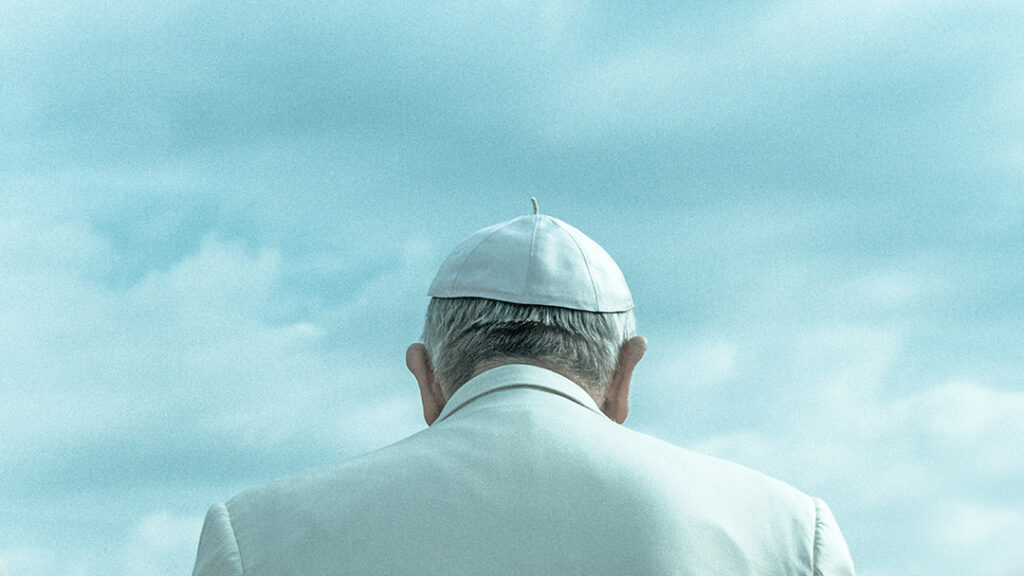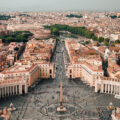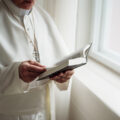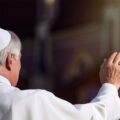Pope Benedict XVI: His legacy of vulnerability
Pope Benedict XVI: His legacy of vulnerability
On New Year’s Eve 2022, Benedict XVI, the first pope to resign from office, died. What will remain of his pontificate?
Worldwide mourning and sympathy
After the death of Pope Benedict XVI, there was worldwide mourning and sympathy. This compassion did not only come from direct companions and Christian theologians. Representatives of other religions and political circles also commented on the death of the pope emeritus.[1] For example, Israeli Prime Minister Benjamin Netanyahu has praised the late pope as a great spiritual leader who was fully committed to the historic reconciliation between the Catholic Church and the Jewish people.[2]
A churchman who polarised
When Pope Benedict XVI was appointed the new pope after John Paul II in 2005, there was a real hype about the theologian, especially in Germany and his home state of Bavaria. But over the years, the enthusiasm for him waned. Some accused the former theology professor of not being close enough to the people. In addition, he was considered by many to be a strictly conservative Catholic hardliner. On top of that, he was accused of reacting too hesitantly regarding the abuse scandals in the Catholic Church.[3] Therefore, the question arises as to what message the theologian of the century will leave behind for people. What is his legacy as pope?
Benedict XVI and his resignation
On 11 February 2013, Pope Benedict XVI announced his resignation as head of the Catholic Church. This caused a worldwide sensation and he made (Church) history. A pope had not resigned from his office for more than 700 years.[4] The Vatican and the world were completely surprised. Only a few of the pope’s confidants were apparently informed in advance.[5]
Pope Benedict XVI described his resignation with the following words: “After repeatedly examining my conscience before God, I have come to the conclusion that, due to advancing age, my strength is no longer suitable to exercise the ministry of Peter in an appropriate manner.”[6] He also explained that the world was changing faster and faster and that this situation had become particularly demanding for him compared to the past. In order to really fulfill his task, he needed strength. This strength had clearly diminished in him in the past months, the former pope said.[7]
Reactions to this
Despite the fear expressed by some that two popes, one in office and one emeritus, would cause confusion or even schism,[8] most reactions to the resignation were marked by surprise and simultaneous respect. This can be exemplified by these voices from Poland: “This is a great surprise for us,”[9] said Bishop Wojciech Polak, Secretary of the Catholic Bishops’ Conference of Poland. Adam Boniecki, one of Poland’s best-known Catholic intellectuals, called the move important and trend-setting for the future of the Church. Italy’s President Giorgio Napolitano praised Pope Benedict XVI for his “great courage” after his decision to resign. He paid the pope his “greatest respect,” he said.[10]
An admission of vulnerability and fallibility
For the apparently conservative Joseph Ratzinger – his name before becoming Pope Benedict XVI – the office was seemingly not above everything. This view contradicted the previous theology of the office, which was all about always being strong, perfect, and holy.[11] Pope Benedict XVI, however, had the courage to admit his vulnerability and humanity, and ultimately also his fallibility. In his spiritual testament, he asked for forgiveness from his fellow human beings whom he had hurt during his lifetime.[12] With this admission of his own vulnerability, Benedict XVI left a groundbreaking message for his posterity: those who admit their own limits become sensitive to the limits of others.[13]
John Paul II: public suffering
Pope Benedict XVI’s predecessor Pope John Paul II also suffered in the last years of his life. Parkinson’s disease, his hip condition, and his arthrosis made it increasingly difficult for him to carry out his ministry. At first, he had to use a cane, then he could only move around in a wheelchair, and since 2001 it had also become increasingly difficult for him to speak.[14] However, John Paul II did not hide his suffering from the public. On the contrary, he consciously showed his suffering. In all this, he did not think of resigning. By saying, “Even Jesus did not come down from the cross,” Pope John Paul II had always rejected questions about his resignation for health reasons. He remained true to this principle until his death.[15]
A precious message
Even though both popes have chosen a very different path with regard to the question of resignation from the papacy, there is an essential commonality in their message for the people: fallibility, weakness, and vulnerability are part of being human. In our achievement-oriented society, it is a fact that you have to function, topics such as suffering, dying, and death are often still taboo. Dealing with these issues honestly and openly sends an important and valuable signal in terms of humanness.
Our team of analysts conducts research on topics relating to religion and society. Find out their relationships on the EARS Dashboard.
Sources
[1] Kondolenzticker – Reaktionen auf den Tod von Papst Benedikt XVI.
[2] Kondolenzticker – Reaktionen auf den Tod von Papst Benedikt XVI.
[3] Verehrt und umstritten: Das bleibt vom Papst Benedikt XVI.
[4] Beliebt, umstritten: Das Leben von Papst Benedikt XVI.
[5] Rücktritt aus heiterem Himmel
[6] Rücktritt aus heiterem Himmel
[7] Historische Überraschung am frühen morgen
[8] „Joseph Ratzinger hat ein massives Rollenproblem“
[10] Zum Abschied viel Respekt
[11] Ein Vermächtnis von Benedikt XVI. ist seine Verletzlichkeit
[12] Das geistliche Testament des emeritierten Papstes Benedikt XVI.
[13] Ein Vermächtnis von Benedikt XVI. ist seine Verletzlichkeit






